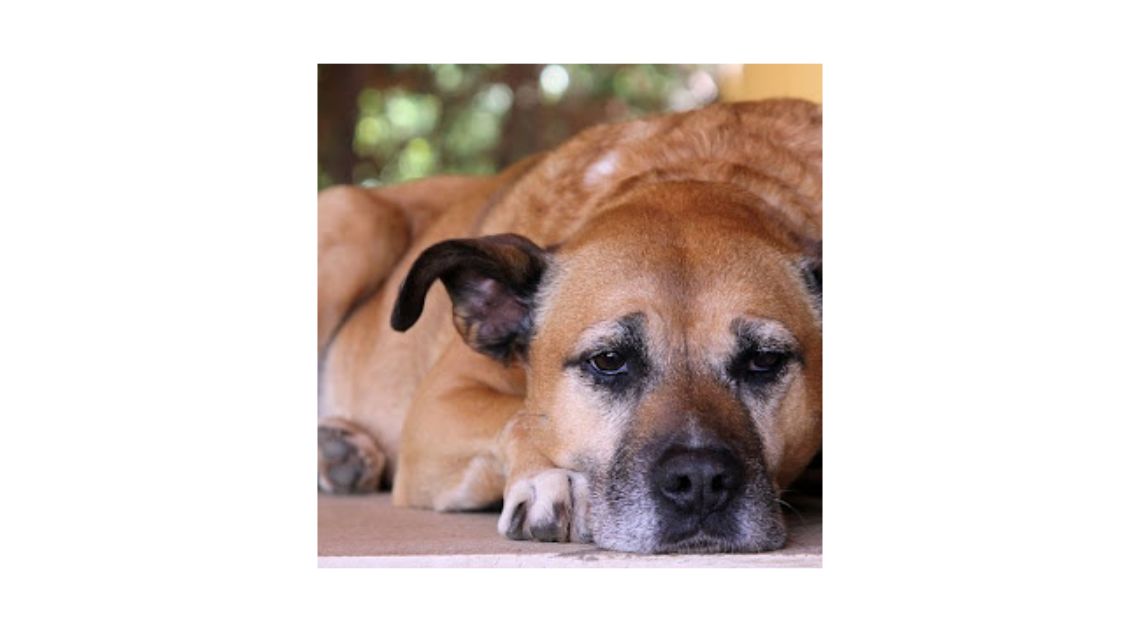While most dog owners often find it difficult to identify dementia symptoms in dogs, there are various helpful methods that can be used to determine whether your dog has dementia or not.

Dogs have an excellent memory, and they hold the knowledge of everything that happens around them from what they can see, hear, smell, taste and feel. And so, it can be confusing and scary for a dog if they start to lose their memory, and it affects their senses and how they view and interact with the world around them.
One of the key symptoms of dementia in dogs is reduced activity levels and disinterest in normal activities that they enjoy. In addition, you may notice changes in social behaviour, such as reduced interaction with other dogs or humans.
Other indicators include aggressive or confused behaviour, as well as changes in sleeping habits. If you suspect that your dog has dementia, it is important to take him or her to a veterinarian for diagnosis and treatment.
Whether we are talking about humans or dogs, dementia is a serious condition that can have a significant impact on an individual's quality of life. So, with that in mind, let's explore the key symptoms of dog dementia that you need to be aware of.
It's often difficult to identify the dementia symptoms in dogs, but there are some helpful methods that can help with diagnosis. Pay close attention to your dog's behaviour. If there are any sudden changes that you suspect might be caused by dementia or another condition, it's always worth talking to a vet to get a diagnosis and discuss treatment options.

The most common indicators of canine cognitive dysfunction are changes in social behaviour and activity levels. Dogs with dementia may show less interest in activities they usually enjoy, such as taking walks or playing fetch.
You may also notice that your dog is not as energetic or alert and is often confused about commands that they once were familiar with. Some dogs with dementia may start to exhibit aggressive or fearful behaviour. They may also sleep more than usual or excessively groom themselves.
Clearly, it can be difficult to associate these symptoms with dementia in dogs because they can be signs of other problems; however, if you see many of these behaviours or a symptom that isn’t going away, it could be time to get professional advice.
The first symptom of canine cognitive dysfunction is confusion. This symptom can be seen when your pet has trouble following directions and obeying commands. They might also forget where their bed is, suddenly become unfamiliar with usually familiar objects and sounds and forget how to play games like fetch.
Increased anxiety is one of the key symptoms of canine cognitive dysfunction. When your dog feels anxious, they may develop issues with sleeping and eating. Additionally, you may notice other behavioural changes such as aggression or confusion. If you see this, it’s vital to get it checked out quickly for your and your dog's benefit.
Dogs with cognitive dysfunction may display an extreme mood change - in other words, they may seem happy one minute and then show signs of depression the next.
One key symptom is a low desire to interact with other dogs or people. This lack of interest in interacting with others is often accompanied by decreased activity levels and disinterest in normal activities such as playing or going for walks.
Excessive licking or barking are both symptoms of canine cognitive dysfunction. These dogs will also be more reactive to sudden changes in their environment, such as a new person coming into their space or loud noises that didn't typically bother them before.
This may include a refusal to obey commands or instructions, increased reactivity, an inability to focus on the task at hand and an unwillingness to follow the normal behaviour patterns.
This means that your dog may have reduced interest in their food, or they may even stop eating altogether. It’s a cause for concern for many reasons and needs to be diagnosed and treated by a vet quickly so that you can help your dog be more comfortable.
The inability to control bowel or bladder movements can be distressing for both you and your dog. However, if this is occurring, it is often considered a symptom of dementia and should be dealt with in a caring manner. It’s unlikely it’s happened on purpose, and your dog probably feels unwell. If this occurs, regularly seek advice from your vet.
One of the early symptoms of dementia in dogs is changes in the sleep-wake cycle. This can manifest as either excessive sleeping (hypersomnia) or excessive waking (insomnia). If you notice that your dog has been sleeping more or less than usual, it would be a good idea to consult your veterinarian.

There are many factors that can lead to canine dementia. Some of the most common causes include age, brain damage, and previous head injuries. Like dementia in humans, a lot is still unknown, and so it’s difficult to pinpoint causes.
Many drugs can be used to combat symptoms of dementia in dogs, but there are also natural treatments you can try. Your vet will be able to advise you on the best treatments for your dog and what will help ease their symptoms for a better quality of life. You can also make your home more comfortable by investing in nightlights, an orthopaedic foam pillow, and puppy pads.
A balanced, healthy diet is essential for your dog's health and well-being. It's not just about feeding them the right food; it's also important that they eat it in a way that optimises their cognitive function. When talking about treatments, your vet may recommend changing your dog to a specialised diet. This diet will be full of antioxidants, vitamins, amino acids and omega-3 fatty acids, which have been proven to help their cognitive function and improve their quality of life.
Dementia is a severe condition that can have a significant impact on a dog's quality of life. There is no average life expectancy for a dog with dementia; however, by working with your vet, you can track your dog's quality of life so that you know when your dog is telling you it's time.
Everyone in the family can help a dog dementia patient. The most obvious way to help is by being there for your dog, which means being present in the moment and doing everything you can to engage them. If they are having trouble sleeping, for example, you might find that some soothing music helps soothe them into a restful sleep. You can also offer your dog their favourite treats or toys as another way to stimulate them and get them back on track with normal behaviours.
If you've been wondering how to know if your dog has dementia, you can look out for some of the following symptoms; loss of appetite, confusion, or a change in their sleep-wake cycle. They may also start to urinate or defecate in the house and become aggressive. Fortunately, canine dementia can be treated with regular vet care, changes to the home, medication and a special diet designed to improve your dog's cognitive function.
Dog dementia can be caused by a variety of factors and has different symptoms and progression rates in different dogs. However, early detection and treatment can help to improve the outcome and quality of life for your dog, so it is important to speak with your veterinarian about the best course of treatment for your specific dog.
There are several stages of dog dementia, and the severity can vary depending on several factors. The earliest stage is typically characterised by changes in behaviour, including confusion, disorientation, and anxiety. More severe symptoms may develop as the condition progresses, such as loss of interest in favourite activities, sleep changes, house soiling, and difficulty with basic commands.
The most common cause of cognitive dysfunction in dogs is age-related changes in the brain. Other potential causes include disease, injury, or other conditions that affect the brain.
A diagnosis of cognitive dysfunction in dogs is typically made based on a combination of clinical signs, medical history, and diagnostic tests. Your veterinarian will typically perform a physical exam, as well as blood and urine tests to rule out other potential causes of your dog's symptoms. They may also recommend imaging studies, such as MRI or CT, to evaluate the brain for changes associated with cognitive dysfunction.
Yes, family members can play an important role in helping to care for a dog with dementia. It is essential to work closely with your veterinarian to develop a personalised care plan, including medications, supplements, dietary changes, and behaviour modification techniques. Additionally, family members can help to monitor your dog's condition, provide companionship, and assist with day-to-day care tasks. Further, a support group or other pet caregivers can be an excellent resource for tips, advice, and moral support.